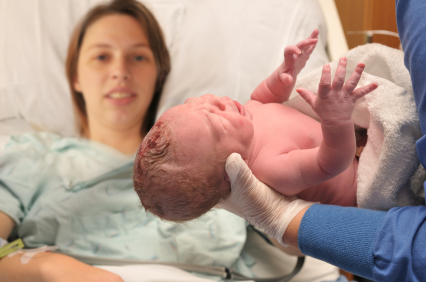May 1, 2013 — The placenta is what separates us from the marsupials. The organ connects a fetus to a mother’s uterine wall and allows for the exchange of nutrients and waste for the developing baby.
Upon birth, the mothers of many of our fellow placental mammals will eat the iron-rich sac that nourished their young. And while few humans would go that route, some human mothers, especially among traditional tribes and Eastern cultures, do give higher meaning to the placenta and want to keep it after birth.
“They want to bury it. They believe it has its own spirit,” said Rep. Alissa Keny-Guyer, D-Portland, the sponsor of House Bill 2612, which would legalize patient removal of placentas from medical facilities.
Hospitals and birth centers have already been releasing placentas to mothers, but there’s been no consistent policy or public health standard. It’s also technically against the law.
“Hospitals have been releasing placentas, and they’ve been doing it illegally,” Keny-Guyer said.
That’s because patients are not allowed to take home “medical waste” — and the only significant exception to the law is for veterinary medicine, not human placentas.
“Many families have some cultural and religious beliefs around the placenta, and we want to be open to that,” said Patti O’Sullivan, the lobbyist for the Oregon Association of Hospitals & Health Systems.
The original bill stipulated that mothers be educated about placentas, including the potential for disease and agree not to sell their baby’s placenta. It also allowed the husband or partner of a deceased and incapacitated mother to take it home under the same guidelines.
The amended bill that passed the House and the Senate Health Committee removes that language, limiting placenta rights to postpartum women and requires the Oregon Health Authority to adopt public health rules.
O’Sullivan said the health authority’s rules would help clarify certain exceptions to women’s rights to their placenta. If part or all of the placenta has been sent off to the laboratory for testing, the mother won’t be able to get it back because of contact with hazardous chemicals like formaldehyde. If the placenta carries the risk of blood-borne diseases like AIDS or Hepatitis C, it will also be withheld.
The state will also adopt rules requiring healthcare providers to notify mothers that they’ll give up their right to all or part of the placenta if they agree to have it tested.
“It can show important signs of prenatal infection, blood flow restriction and damage to the placenta,” said Sen. Elizabeth Steiner Hayward, D-Beaverton, a family physician at Oregon Health & Science University. She said she would caution women in her care against giving up this valuable information.
House Bill 2612 passed the Senate Health Committee on Monday with a unanimous vote. The bill has already passed the House unanimously and now heads to the Senate floor.